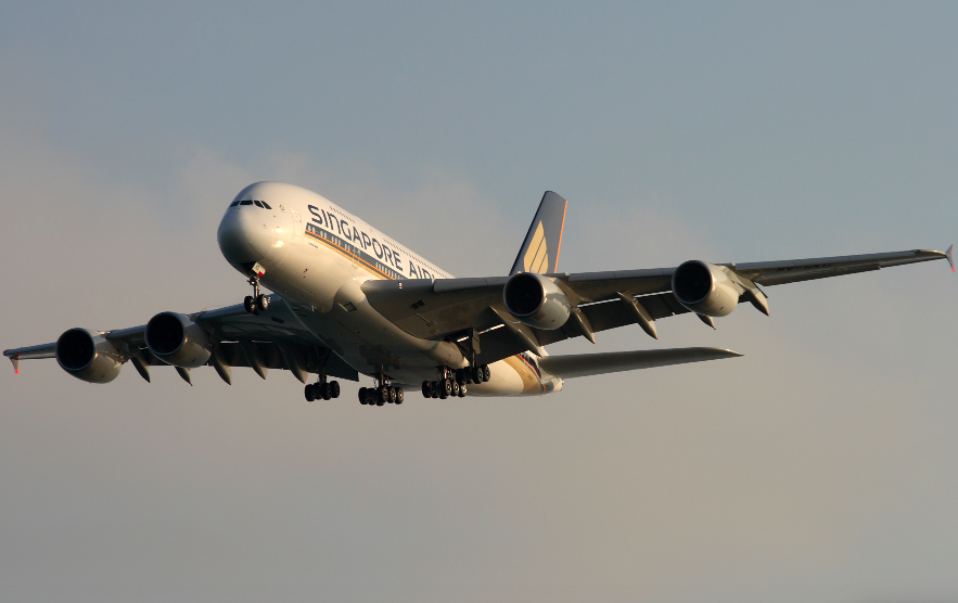A380: best-loved aircraft in the skies, or dead plane walking?
British Airways said to be contemplating buying secondhand Superjumbo jets

As a location to await a miracle, Lourdes looks promising. Since 14-year-old Bernadette Soubirous saw an apparition of the Virgin Mary in 1858, thousands of divine events are said to have taken place in the town in the south west of France.
The latest arrival at the local airport in need of a marvel weighs more than 200 tonnes and a decade ago was briefly in the spotlight itself: the Airbus A380, code 9V-SKA, which launched the passenger service of the “Superjumbo”.
Singapore Airlines leased the jet from the German company Dr Peters Group for 10 years, and duly handed it back in the summer. The pioneering plane is now being stored on the ground at Tarbes Lourdes Pyrénées airport while a buyer is sought. Three more end-of-lease aircraft will soon join it.
The plane’s maker, Airbus, and anyone with a financial interest in A380s desperately need something unprecedented to appear: a secondhand market for the double-deck jet. If a customer can be found for the one-careful-owner, impeccably maintained plane, then the future of the world’s biggest passenger aircraft looks brighter.
The lifespan of a typical plane involves several identities. To illustrate this point, I picked a Boeing 767 at random from Planespotters.net. C-FMWP was delivered in 1993 to Air Canada, but swiftly loaned to Polynesian Airlines and christened “Manu Samoa”. After a South Pacific sojourn, the 767 flew back to its Canadian owner. Three years ago it was “densified” with an extra 69 economy seats and transferred to the budget brand, Air Canada Rouge, where it is working very hard: last Sunday alone the twin-jet flew from Trinidad to Toronto and then made two round-trips to Florida and back.
If it looked like the Airbus A380 could still be earning its keep in its mid-twenties, the fortunes of the slow-selling model would improve dramatically. Leasing companies would be more inclined to order new editions. With a steady stream of orders, Airbus could promise Emirates – by far the biggest customer of the A380 – that the production line will continue for a decade or more, and thereby pick up an order for several dozen more from the Dubai-based carrier.
So how likely is the pioneering plane to be sold? Jamie Bullen, European finance editor for FlightGlobal, says a deal could be close. Anselm Gehling, Dr Peters’s chief executive, told him: "We are in discussion with a number of potential buyers, including British Airways and a number of other European flag carriers as well as Asian low-cost airlines.”
BA declined to comment on speculation, but a deal looks compelling. The airline already has a dozen A380s of its own, and plenty of experienced Airbus pilots who could be trained on the plane. The bigger plane would help extract maximum value from those most precious of aviation assets, slots at Heathrow, by flying 36 per cent more passengers than BA’s next-biggest aircraft, the Boeing 747. And as BA’s “Jumbo” fleet (average age 21-plus) is slowly retired, the A380 could gradually replace it. From Heathrow to Miami and Johannesburg, one of the two daily BA flights is a 747 and the other an A380. It makes sense to make them all Airbus, and on these busy routes the extra 124 seats each way should be fairly easy to fill; the A380 is very popular among passengers.
Similar logic applies for Air France and Lufthansa, which have 10 and 14 Superjumbos respectively.
Asian low-cost airlines, based in India, China or South East Asia, would be taking much more of a risk on a used A380. When they strip out all the lie-flat beds and install 800-plus economy seats, will there be a viable market to fill them between Bangkok and Singapore or Guangzhou and Shanghai? Any buyer won’t want to pay too much to find out.
With no previous transactions to assist calibration, no one knows the “right” price for a 10-year-old Superjumbo. No doubt British Airways believes it can negotiate a bargain. But the owner has an alternative: cannibalising the aircraft for parts, to keep other A380s flying.
“Part-out is still a serious option we are considering,” Anselm Gehling told FlightGlobal. “It would be sad for the aircraft, and the manufacturer I think, if this was the case, but of course we must consider it.”
Is the A380 a dead plane walking, or the best-loved aircraft in the skies? Quite possibly both.
Subscribe to Independent Premium to bookmark this article
Want to bookmark your favourite articles and stories to read or reference later? Start your Independent Premium subscription today.

Join our commenting forum
Join thought-provoking conversations, follow other Independent readers and see their replies